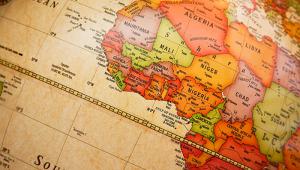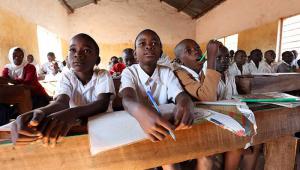By Vivienne Russell | 22 July 2013
Africa’s economic and development institutions need to set out how the continent’s pressing need for infrastructure is going to be financed, the president of the African Development Bank has said.
Addressing a special meeting in Tunis on July 19, Donald Kaberuka said infrastructure was key to Africa’s economic growth. ‘No country in the world has been able to maintain 7% gross domestic product growth and above sustainably, unless the infrastructure bottleneck is overcome.’
But he went on to observe that African institutions were only able to raise around £45bn of infrastructure finance annually, leaving a gap of a similar amount.
‘We are all doing different things in our respective regions with new initiatives and funds being created, but let us face it: there is limited additionally and no critical mass,’ said Kaberuka.
Africa’s regional economic entities and development institutions needed to do more than simply reflecting on various scenarios for financing infrastructure. They should outline practical steps for how projects will be financed, he said.
Kaberuka highlighted the role that can be played by the Africa 50 vehicle, which should act as a ‘collective instrument’ for securing investment.
The AfDB stood ready to accompany African countries’ development efforts with Africa 50.
‘It will be a vehicle which can build on the AfDB track record and financial strength as investor, financial engineer, attract local and international pools of savings, utilise smart aid and leverage that to up our funding or infrastructure,’ the bank’s president said.
‘It will be a strongly rated instrument able to issue a bond of significance – a bond attractive to investors.’
Others attending the meeting included Nkosazana Dlamini-Zuma, African Union Commission chair, and Carlos Lopes, executive secretary of the United Nations Economic Commission for Africa.
Dlamini-Zuma said US $68bn was needed to finance priority infrastructure projects over the next eight years. She cited a joint study undertaken by the New Partnership for Africa’s Development group and UN’s economic commission, which concluded the continent had the resource potential to finance its own development.
‘The study presents evidence in support of this bold conclusion by look at various domestic financial instruments such as tax revenues, pension funds, remittances, earnings from minerals and fuels, international reserves, stock exchanges and bond markets,’ said Dlamini-Zuma.
‘The Africa 50 Fund should enable us to creatively explore some of the above instruments, with a view to raising sustainable and large-scale resources to speed up the transformation of the continent.’













